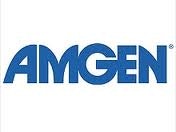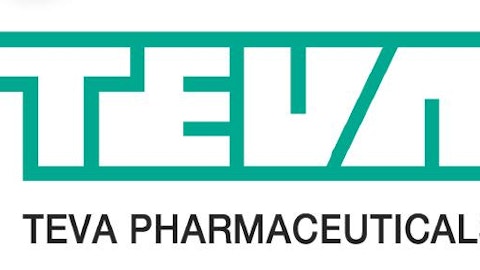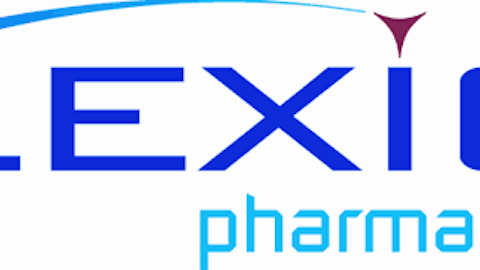
All roads lead to Onyx
At the center of this oncology takeover frenzy is Onyx Pharmaceuticals, Inc. (NASDAQ:ONXX), which has three approved cancer treatments on the market today – Nexavar (sorafenib), Kyprolis (carfilzomib), and Stivarga (regorafenib). Nexavar, which was co-developed with Bayer, is the company’s flagship drug, and is used to treat kidney cancer. Kyprolis is used to treat patients with multiple myeloma, and Stivarga is a colorectal cancer treatment that is co-promoted with Bayer in the United States. Last quarter, Onyx Pharmaceuticals, Inc. (NASDAQ:ONXX)’s revenue rose 102% year-on-year, although earnings remain in the red.
Onyx Pharmaceuticals, Inc. (NASDAQ:ONXX) drew a lot of attention to itself when it put itself on sale on June 30, after rejecting an $8.7 billion offer from Amgen, Inc. (NASDAQ:AMGN). Amgen, Inc. (NASDAQ:AMGN)’s offer valued the company at $120 per share — a 50% premium over the previous day’s closing price. Amgen’s big bid revealed its desperation to diversify its pipeline, since four of its five best-selling drugs face patent expirations in 2015.
In addition to Amgen, Inc. (NASDAQ:AMGN), which is reportedly still interested in acquiring Onyx, other interested parties include Bayer and Pfizer Inc. (NYSE:PFE). Bayer already has existing collaborations and royalty-licensing agreements with Onyx for Nexavar and Stivarga, which means an acquisition should go fairly smoothly. Meanwhile, Onyx holds the rights to future milestone and royalty payments from Pfizer Inc. (NYSE:PFE)’s experimental breast cancer treatment, palbociclib. An acquisition would not only strengthen Pfizer Inc. (NYSE:PFE)’s aging pipeline but also negate those payments.
All eyes on Merck
Another company that biotech investors have been watching closely is Merck & Co., Inc. (NYSE:MRK). Just like Amgen, Inc. (NASDAQ:AMGN) and Pfizer Inc. (NYSE:PFE), Merck desperately needs to add new drugs to its pipeline. The company took a huge hit last year after it lost patent exclusivity for its asthma and allergy medication, Singulair.
Merck & Co., Inc. (NYSE:MRK) is now relying on its two diabetes medications, Januvia and Janumet, to carry it through this rough patch, but sales of Januvia have been hit by FDA investigations regarding its link to pancreatic cancer. It then suffered another setback in July, when the FDA warned that its insomnia treatment, suvorexant, was unsafe at recommended doses. All that negative news took its toll on Merck & Co., Inc. (NYSE:MRK), which reported a 49.5% year-on-year plunge in earnings and a 10.6% decline in revenue last quarter.
Therefore, many analysts have been looking at Merck & Co., Inc. (NYSE:MRK)’s oncology segment, which only accounted for 3% of its 2012 revenue. In that segment, Merck & Co., Inc. (NYSE:MRK) will lose an estimated $1 billion in annual sales by 2015 after Temodar, its brain cancer drug, and Emend, which treats chemotherapy-related nausea, lose their patent protection.
A smaller, smarter buy
While some analysts have suggested that Merck will join in the bidding war to take over Onyx, a smaller name has emerged as a more affordable alternative: Inovio Pharmaceuticals Inc (NYSEMKT:INO), which has a market cap of $540 million.
Inovio Pharmaceuticals Inc (NYSEMKT:INO)’s hTERT cancer vaccine, which will start its Phase I clinical trial in 2014, could potentially defend against a wide variety of cancers, including breast, non-small cell lung and prostate cancers. In addition, Inovio Pharmaceuticals Inc (NYSEMKT:INO) has a diverse pipeline of drugs, including vaccines for HIV, hepatitis, malaria and influenza. Last month, Inovio announced that a preclinical study of its new influenza vaccine for H7N9 (bird flu) had a 100% success rate in animals.
Merck could acquire all of these treatments for less than a billion dollars, as opposed to the estimated $10 billion to $20 billion it would take to buy Onyx. Merck could also initiate a collaboration with Inovio, by using milestone and royalty payments, instead of buying the entire company outright. Merck and Inovio already have a 2004 licensing agreement in which Merck was granted non-exclusive global rights to use Inovio’s electroporation technology for the delivery of proprietary DNA vaccines. Lastly, Inovio CEO Joseph Kim was once a senior vaccine developer at Merck, which makes future collaborations extremely likely.
Inovio shares rose 44% on August 5 on renewed speculation that a Merck acquisition could occur, but both companies have remained silent regarding the rumors.
The Foolish Bottom Line
Onyx, Amgen, Inc. (NASDAQ:AMGN), Pfizer Inc. (NYSE:PFE) and Merck are only a few pieces of the bigger picture in cancer related mergers and acquisitions, yet they are representative of a consistent underlying theme in the industry.
Larger pharmaceutical companies facing major patent expirations are faced with two major choices to expand their pipelines – to either acquire established companies like Onyx at a high premium, or to take a risk on smaller companies, like Inovio, that have promising products in their pipeline. Whereas Amgen, Inc. (NASDAQ:AMGN) made it clear that it prefers the former choice, the latter can also be appealing for companies like Merck, since the reward can be exponential in comparison to the initial investment.
However, investors should beware of playing these stocks on acquisition rumors, since they often never come to fruition. Yet it’s important to keep an eye on these recent moves in oncology treatments, since the major pharmaceutical companies are increasingly considering them invaluable additions to their established pipelines.
The article A Closer Look at the Battle Over Cancer Treatments originally appeared on Fool.com and is written by Leo Sun.
Leo Sun has no position in any stocks mentioned. The Motley Fool has no position in any of the stocks mentioned. Leo is a member of The Motley Fool Blog Network — entries represent the personal opinion of the blogger and are not formally edited.
Copyright © 1995 – 2013 The Motley Fool, LLC. All rights reserved. The Motley Fool has a disclosure policy.





